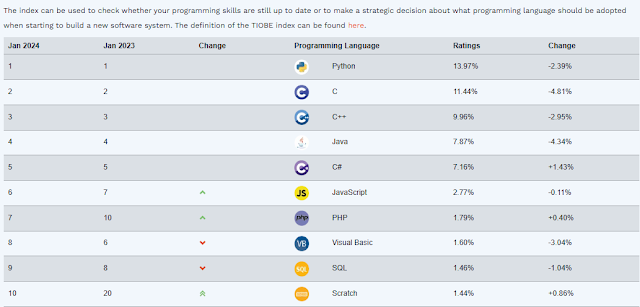A Beginner's Guide to Choosing the Right Programming Language: Spotlight on Java
If you're just starting out in programming, choosing the right language to begin with can be a bit of a puzzle. Embarking on a programming adventure is akin to stepping into a world brimming with endless possibilities. For me, the journey began with Java, a language that has significantly shaped my understanding and skills as a programmer. Let me share with you how Java has been a steadfast companion in my coding odyssey.
The Initial Leap into Java
When I first dabbled in programming, the multitude of languages felt overwhelming. Choosing Java was a decision influenced by its prevalence and versatility. Initially, I perceived Java as just another language. However, it wasn't long before I recognized its profound impact on my approach to coding.
Java's philosophy of "Write Once, Run Anywhere" resonated with me. This principle of platform independence meant that my applications could transcend the boundaries of specific hardware or operating systems. As a novice, witnessing my code come to life across different platforms was nothing short of magical. It instilled in me a sense of empowerment and flexibility that I hadn’t anticipated.
Growing with Java: Clarity, Structure, and Robustness
As I delved deeper, Java's structured syntax, which I once considered verbose, started to shine as a beacon of clarity. In the beginning, the strict rules around data types and structure seemed cumbersome. But these very aspects cultivated in me a discipline for writing clean, maintainable code. This clarity and structure became especially valuable as I ventured into larger, more complex projects.
The robustness of Java, a trait I gradually came to appreciate, lies in its strong memory management and exceptional handling of concurrency. These features, coupled with its vast ecosystem of libraries and frameworks, enabled me to build scalable and high-performance applications. The journey through Java’s rich ecosystem was an enlightening experience, exposing me to a wide array of tools that boosted my efficiency and broadened my technical horizons.
Java's Influence Beyond Code
Java did more than just teach me how to code; it shaped my problem-solving mindset. The language's emphasis on object-oriented principles nudged me towards analyzing problems through a lens of modularity and reusability. This approach transcended programming and seeped into how I tackled challenges outside the realm of coding.
In the grand scheme of programming languages, where each has its unique flair and strengths, Java has been my reliable constant. It might not have the simplicity of Python or the ubiquity of JavaScript in web development, but Java's balanced blend of performance, reliability, and versatility makes it a powerhouse, particularly in enterprise-level applications.
(Next, I'll reflect on how Java has kept pace with modern programming trends and its continuing relevance in my programming journey. I'll also touch upon the evolving landscape of programming languages and where Java stands in this dynamic ecosystem.)
Why Java is a Great Starting Point?
Think of Java like a trusty old car – reliable and strong. It's been around since the 90s and is used everywhere, from mobile apps to big business systems. What's cool about Java? Well, it's like writing instructions once and having them work on any computer. This is super handy because you don't have to rewrite your code for different devices.
Some people say Java is a bit wordy and not the fastest, especially when compared to languages like Python. But, this 'wordiness' actually makes your code clear and easy to understand, which is great when you're just starting out.
The World of Java: Tools and Friends
Java doesn't come alone; it brings a bunch of helpful tools and friends. There are frameworks – think of them as toolkits – like Spring and Hibernate that make building apps and working with data easier. Plus, you've got tools like Maven and Gradle that help organize and build your projects.
Also, Java has some cool relatives, like Kotlin and Scala. They're a bit like Java, but with some extra flair and features. They work together with Java, so learning them in the future will be easier once you know Java.
Java vs. Others: What's Best for You?
Now, how does Java compare to others like Python, JavaScript, or C#? Python is super easy and great for beginners, especially if you're into data science. JavaScript is the king of websites; if you dream of building web apps, it's your go-to. C#, on the other hand, is awesome for making Windows apps and games.
The TIOBE index is a measure of the popularity of programming languages, based on the number of search engine results for queries containing the name of the language
Java is like the all-rounder. It's strong in building large, secure apps, and it's super reliable. For beginners, its clear code structure makes learning programming concepts easier. Plus, Java's strong typing (which means you have to be clear about what kind of data you're using) is actually a good thing for learning to code the right way.
I hope this helps you in your search.

Comments
Post a Comment